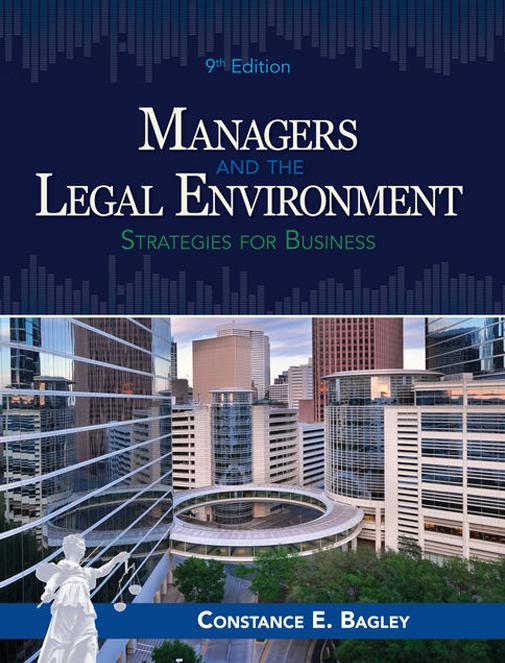Question
CHAPTER 1-2cScarcity and a Definition of Economics We are now ready to define a key concept in economics: scarcity . Scarcity is the condition in

CHAPTER 1-2cScarcity and a Definition of Economics
We are now ready to define a key concept in economics:scarcity.Scarcityis the condition in which our wants (for goods) are greater than the limited resources (land, labor, capital, and entrepreneurship) available to satisfy those wants. In other words, we want goods, but not enough resources are available to provide us with all the goods we want.
Look at it this way: Our wants (for goods) are infinite, but our resources (which we need to produce the goods) are finite. Scarcity is the result of our infinite wants hitting up against finite resources.
Many economists say that if scarcity didn't exist, neither would economics. In other words, if our wants weren't greater than the limited resources available to satisfy them, there would be no field of study called economics. This is similar to saying that if matter and motion didn't exist, neither would physics or that if living things didn't exist, neither would biology. For this reason, we defineeconomicsin this text as the science of scarcity. More completely,economics is the science of how individuals and societies deal with the fact that wants are greater than the limited resources available to satisfy those wants.
Thinking Like an EconomistScarcity Affects Everyone
Everyone in the world?even a billionaire?has to face scarcity. Billionaires may be able to satisfy more of their wants for tangible goods (houses, cars) than most people, but they still may not have the resources to satisfy all their wants. Their wants might include more time with their children, more friendship, no disease in the world, peace, and a hundred other things that they don't have the resources to "produce."
Thinking in Terms of Scarcity's Effects
Scarcity has effects. Here are three:
the need to make choices,
the need for a rationing device, and
competition.
ChoicesPeople have to make choices because of scarcity. Because our unlimited wants are greater than our limited resources, some wants must go unsatisfied. We must choose which wants we will satisfy and which we will not. Jeremy asks, "Do I go to Hawaii or do I pay off my car loan earlier?" Ellen asks, "Do I buy the new sweater or two new shirts?"
Need for a Rationing DeviceArationing deviceis a means of deciding who gets what of available resources and goods. Scarcity implies the need for a rationing device. If people have infinite wants for goods and if only limited resources are available to produce the goods, then a rationing device is needed to decide who gets the available quantity of goods. Dollar price is a rationing device. For instance, 100 cars are on the lot, and everyone wants a new car. How do we decide who gets what quantity of the new cars? The answer is to use the rationing device calleddollar price. The people who pay the dollar price for a new car end up with one.
Scarcity and CompetitionDo you see competition in the world? Are people competing for jobs? Are states and cities competing for businesses? Are students competing for grades? The answer to all these questions is yes. The economist wants to know why this competition exists and what form it takes. First, the economist concludes, competition exists because of scarcity.If there were enough resources to satisfy all our seemingly unlimited wants, people would not have to compete for the available, but limited, resources.
Second, the economist sees that competition takes the form of people trying to get more of the rationing device. If dollar price is the rationing device, people compete to earn dollars. Look at your own case. You are a college student working for a degree. One reason (but perhaps not the only reason) you are attending college is to earn a higher income after graduation. But why do you want a higher income? You want it because it will allow you to satisfy more of your wants.
Suppose muscular strength (measured by lifting weights), instead of dollar price, were the rationing device. Then people with more muscular strength would receive more resources and goods than people with less muscular strength. In that case, people would compete for muscular strength. (Would they spend more time at the gym lifting weights?) The lesson is simple:Whatever the rationing device is, people will compete for it.
MY QUESTION---Based on your study of the material presented in chapters one and two of your text, briefly discuss the link between scarcity, choice, and opportunity cost (please include specific examples to illustrate the link).
. Look atExhibit 1, which summarizes some of the things about scarcity, choice, and opportunity cost up to this point.Exhibit1Scarcity and Related Concepts?
Step by Step Solution
There are 3 Steps involved in it
Step: 1

Get Instant Access to Expert-Tailored Solutions
See step-by-step solutions with expert insights and AI powered tools for academic success
Step: 2

Step: 3

Ace Your Homework with AI
Get the answers you need in no time with our AI-driven, step-by-step assistance
Get Started


